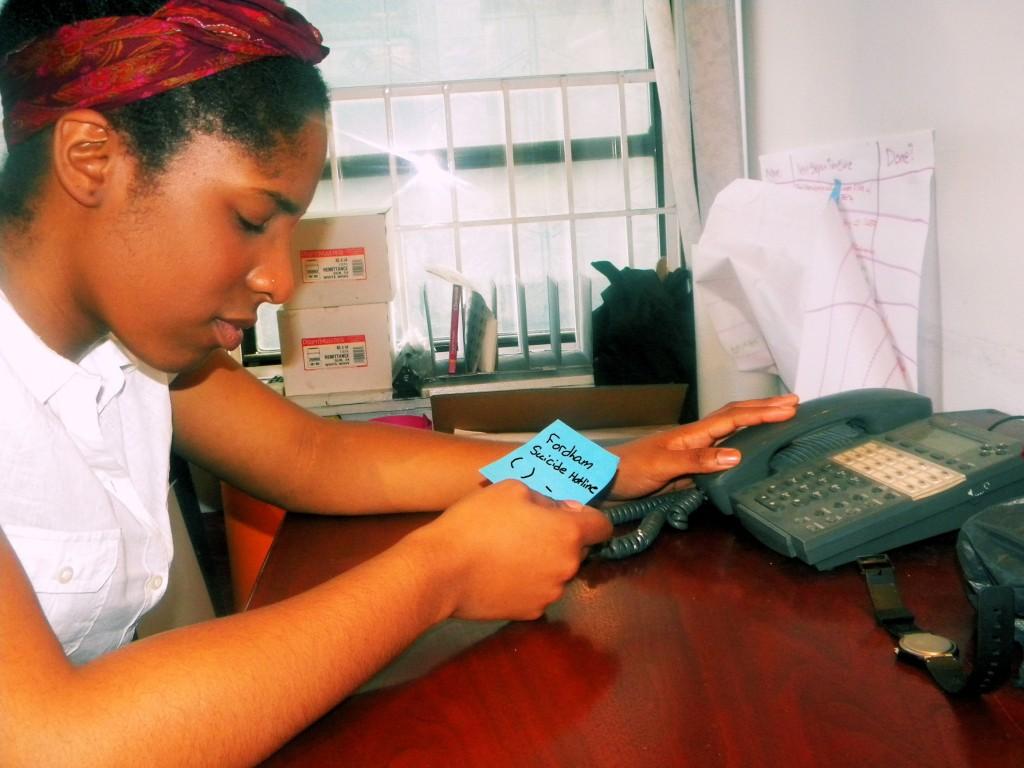Why Fordham Should Provide Students With an Assault Hotline
The Sound of Silence Doesn’t Mean No One Wants to Be Heard
July 24, 2011

Published: May 5, 2011
Last Wednesday, April 27, was Denim Awareness Day for Sexual Violence. Although I do wish to thank those faculty, students and administrators who wore denim ribbons on Wednesday and brought light to what may be one of the most pressing issues on national university campuses, our school seems to have paid little attention to this very important day.
Fellow Fordham students, let us never reduce sexual violence to something that is only spoken about during the weekend of Vagina Monologues or understand sexual violence as a set of isolated incidents that do not deserve our attention on this campus. Sexual violence is a pervasive cultural ideology that Fordham, in all of our benevolence and progressivism, is not immune to.
In recognizing that the spirit of gender violence is alive and well at our own university, on both campuses, I am calling for an increased amount of resources and efforts toward understanding, correcting and fighting instances of sexual violence at Fordham.
On April 27, Anne Hoffman, professor of English and women’s studies at Fordham, attended a Manhattan borough president forum on sexual violence and sexual assault. She returned with some very interesting facts for my fellow students and myself in her Feminist Theories class.
According to the US Department of Education’s Office of Civil Rights, the role of offering resources to combat sexual violence is not on the state, but is on the administration of universities. As students at Fordham University, our administration has a responsibility to provide us with more-than-adequate resources to fight sexual violence.
The number of reported incidents of sexual violence at Fordham is well below the national average. Yet Students Active For Ending Rape (SAFER) discussed at the Manhattan Borough Conference that campuses with a lower amount of reported rapes are actually often worse environments. There may be less channels through which the students can report acts of sexual violence, or there may be a culture of silencing victims of rape and sexual abuse.
I am not interested in perpetuating silences, nor am I interested in coloring Fordham to be an epicenter of sexual violence. Rather, as an involved, caring student at Fordham, I am interested in giving voice to the voiceless, and standing with those students who are survivors of this all-too-pervasive culture of sexual violence.
I believe that a help hotline on campus can help combat the culture of silence that I feel is present at Fordham. I wish to iterate that I do not want to cause some kind of widespread panic or to insinuate that Fordham has a rape culture. However, I do think that Fordham should have a hotline whereby students can anonymously speak with someone about instances of sexual violence they believe to have happened. I do not believe in offering helpful suggestions without offering a sort of action plan, so I also wish to offer some ideas about how this hotline could function.
First of all, I do not think this hotline would be just a rape hotline. It would be a sexual discrimination and assault hotline that would be for students, male or female, gay or straight, who believe they were assaulted or harassed for their gender or sexual orientation.
Secondly, I believe that compassion from within the community is the main route through which we can fight sexual violence. To that end, I believe that we can train members of our own community, especially students in the Graduate School of Social Service (GSSS), to work the phones. We should take advantage of the fact that GSSS is our highest ranked school and help those students gain extra experience by helping to operate this sexual assault call center.
Thirdly, I believe that there should be a small business card with the hotline number given to every student at the beginning of the year. If the number is small enough to be slipped into a wallet, then it is possible that it will be with the student at all times.
Our university needs to take extra steps to let its students know that it cares about their well-being. I understand that this means more work for the university, but in the name of novel concepts and hopeful thinking, I believe that the university should not care if they had to take on extra work to save their students from the trauma of sexual violence.
I am calling for Fordham to protect her students so that future parental and student investors can feel safe in the halls of this institution in the future. We at Fordham do not have a rape culture, but we do have a pervasive culture of silence, and if all it takes to break that culture is a phone number with a caring person on the other end, wouldn’t you want to make that investment?









